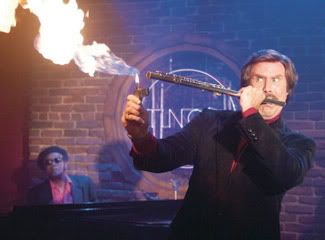Even classless systems like Shadowrun still make extensive use of archtypes. There is more blurring, but each PC still usually has a fairly clearly defined roll. The only 'classes' in Shadowrun would be awakened vs mundane (and I suppose Technomancer in 4E) but the street samurai is still the guy who spends all of his time shooting at things and getting shot, Hackers... well hack, riggers drive the car, faces negotiate, stuff like that.
Generalist characters do sometimes work, particularly in small groups but they're oftentimes very weak compared to another PC who focus' on one or two archtypes.
The greatest (and really only) strength I see in a classless system is that it makes it much easier for small groups as long as the GM lowers the opposition bar across the board. I've played some really good SR games with only two players, a Hacker/StreetSam/Face and an cybermage/rigger. I didn't need to worry so much about what kind of challenges I threw at the PC's, just as long as the thresholds of the tests wern't too high.




